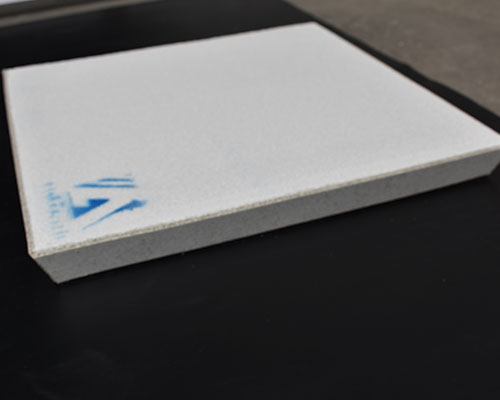The ceramic foam filter for aluminium casting has an open-cell structure, in which connected voids are surrounded by a ceramic material mesh. This structure is usually used for molten metal filtration, and ceramic foam filter is widely used in the aluminum foundry.
Foam Ceramic Filter Features for Aluminium Casting
1. High thermal shock resistance, no crack or peel off during preheating or contact with molten metal. The ceramic foam material has a low coefficient of thermal expansion to minimize the transverse compressive stress when in the filter bowl.
2. Corrosion resistance: The filter material does not react significantly within the expected application range (time, temperature, alloy content).
3. Sufficient bending and compressive strength.
4. Production economy.
5. Low density or light weight, which is convenient for the operator.
The thermal expansion rate of the ceramic foam filter is in the range of 1.5-7.5×10-6mm/℃. Under normal conditions of use, the ceramic foam filter is proven to resist the chemical attack of molten aluminum alloy. The ceramic foam filter is light in weight and preferably has a density of about 0.25-0.40 g/cc.
Ceramic foam is a tough foam made from ceramics. Manufacturing techniques include impregnating open-cell polymer foams internally with ceramic slurry and then firing in a kiln, leaving only ceramic material. The foams may consist of several ceramic materials such as aluminum oxide, a common high-temperature ceramic, and gets insulating properties from the many tiny air-filled voids within the material.
Ceramic Foam Filters are mainly for the filtration of aluminum and alloys in foundries and cast houses. With the excellent resistance to attack and corrosion from molten aluminum, the filter can effectively remove inclusions, reduce trapped gas and provide laminar flow, and then the filtered metal is significantly cleaner. Cleaner metal results in higher-quality castings, less scrap, and fewer inclusion defects, all of which contribute to bottom-line profit.

